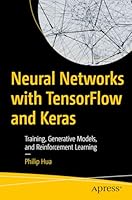
Clang Compiler Frontend: Understand internals of a top-rated C/C++ compiler frontend and create your own tools
- Length: 469 pages
- Edition: 1
- Language: English
- Publisher: Packt Publishing
- Publication Date: 2024-04-09
- ISBN-10: B0CG9NYGJR
- Sales Rank: #0 (See Top 100 Books)
Explore a variety of compiler tools for enhancing the quality of your code and Integrate the tools with your IDE to improve your productivity.
Key Features
- Expand your understanding of the C++ language by learning about how the C++ compiler works and how to utilize its advanced features
- Explore techniques for static code analysis and use them to create lint checks ranging from simple to advanced
- Enhance your IDE to support advanced compiler tools
Book Description
Clang is a compiler for C/C++ and Objective-C programming languages that is a part of the LLVM project. The word “Clang” can refer to either the compiler frontend, which handles parsing and semantic analysis, or the compiler itself, also known as the compiler driver. The driver is responsible for coordinating various components of the compiler, such as the frontend and middle-end, as well as the assembler and linker. This book focuses on the Clang compiler frontend, but also covers other parts of LLVM that are important for understanding the frontend. The LLVM project is constantly evolving, and the version used in this book is 15.x, released in September 2022. The book is divided into two parts. The first covers basic information about LLVM, including installation and development tools, as well as the internal architecture of Clang and its role in LLVM. The final topic in the first part is optimizing compilation performance through features like C++ modules and header maps. The second part of the book covers tools developed using the Clang/LLVM, including clang-tidy for linting, refactoring tools and IDEs support. The book includes many examples to illustrate the material.
What you will learn
- Learn about compiler architecture
- Gain an understanding of the inner workings of Clang
- Become familiar with features specific to Clang
- Investigate various techniques for static code analysis
- Acquire knowledge on how to use AST matchers
- Create custom code modification and refactoring tools
- Explore tools for integrating compiler tools with IDEs
Who this book is for
This book is intended for experienced C++ software engineers who have no prior experience with compiler design, but who want to gain this knowledge and put it into practice. It may also be useful for engineers who want to learn about how Clang works, as well as its specific features such as performance improvements and modularity, which enables the creation of powerful custom compiler tools
Table of Contents
- Environment setup
- Basic libraries and tools
- LLVM architecture and clang
- Clang features
- Clang-tidy linter framework
- Advanced code analysis
- Refactoring tools
- IDE support and code navigation







